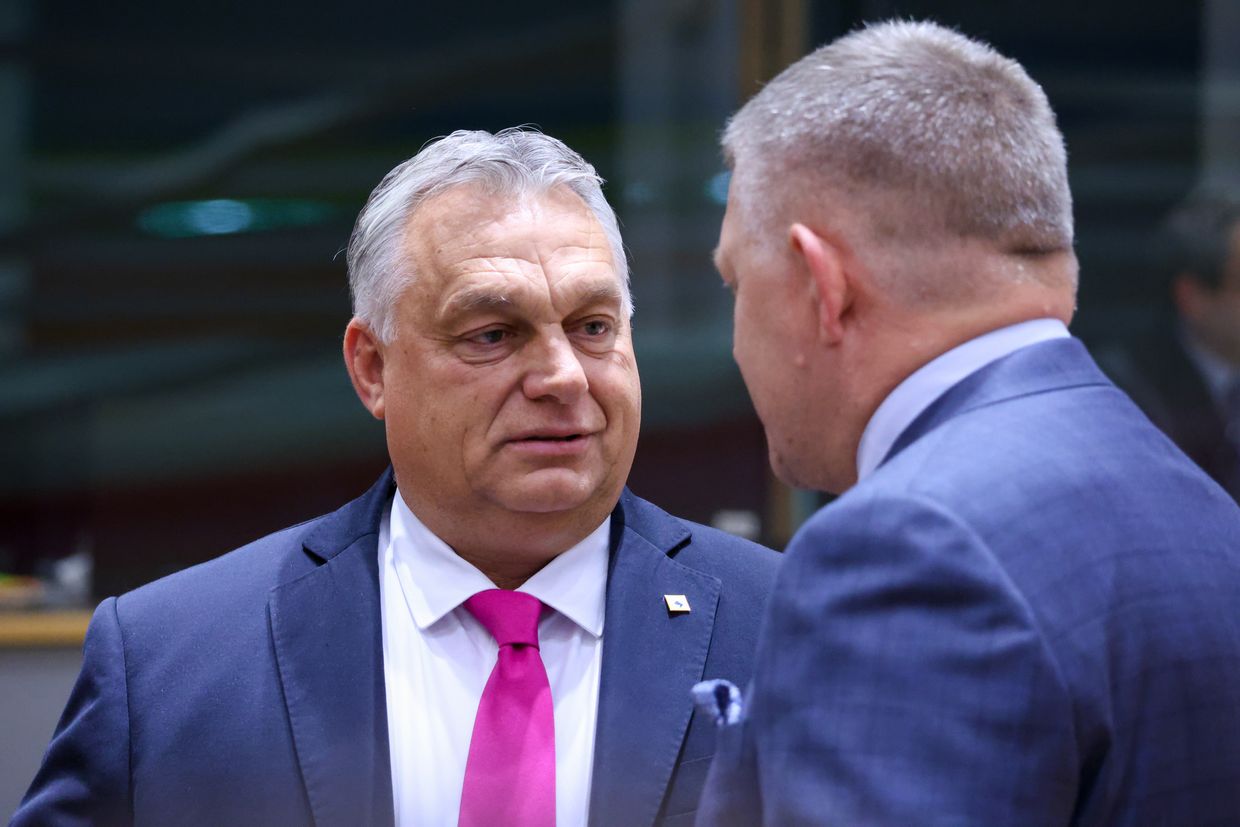Increasing Tensions as Czech Republic Delays Dialogue with Slovakia Over Ukraine Stance – Sky Bulletin
[ad_1]
The discord between the Czech Republic and Slovakia is intensifying with the Czech government’s recent decision to delay bilateral consultations with Slovakia, scheduled for April. This postponement is attributed to differing views on Ukraine, furthering the split between the two nations. Slovak Prime Minister Robert Fico criticized Prague on March 6, claiming that the Czech support for Ukraine in the ongoing conflict risks harming Czech-Slovak ties while Slovakia advocates for peace.
The postponement announcement came from Czech Prime Minister Petr Fiala, who cited “different opinions on key foreign policy issues” as the reason for the delayed consultations.
In a public address on his Facebook page, Fico stated, “We acknowledge that the Czech government decided to endanger (our relations) because it wants to support the war in Ukraine, while the Slovak government openly talks about peace.”
The Slovak foreign policy has markedly changed since Fico’s populist party prevailed in the parliamentary elections last year, adopting a more Ukraine-skeptic approach and leaning towards Russia, posting similarities with Hungarian Prime Minister Viktor Orban’s policies and distancing Slovakia from Czechia.
Expressing concern, Czech Foreign Minister Jan Lipavsky remarked that global partners realize the significance of European security and its impact on worldwide stability. The Czech Republic expressed disapproval over Slovak Foreign Minister Juraj Blanar’s meeting with Russian diplomat Sergey Lavrov in March at Turkey’s Antalya Diplomacy Forum.
Join our community
Support independent journalism in Ukraine. Join us in this fight.
Support us
The Czech Republic and Slovakia have maintained a close relationship since their amicable split in 1993 from Czechoslovakia. They have held regular consultations since 2012; the last took place in April 2023 before Fico’s administration.
As Fico criticizes military support for Ukraine and endorses sanctions on Russia, Slovakia is still not blocking the EU’s aid package to Ukraine or its accession to the EU, unlike Hungary. Even with anti-military aid statements, Fico permitted commercial arms supplies to besieged Ukraine.
The Czech Republic stays committed to supporting Ukraine and is leading an allied effort providing 800,000 artillery shells to address Kyiv’s ammunition scarcity.
Rise of populism in Ukraine’s neighborhood: Not as gloomy as you think
Slovakia’s new Prime Minister Robert Fico insists on halting aid to Ukraine while repeating Russian-aligned narratives, adding to the concern alongside Hungary’s Viktor Orban who also faces similar accusations.

FAQs about the Czech-Slovak Split Over Ukraine Policy
- Why has the Czech Republic postponed its consultations with Slovakia?
- The consultations have been postponed due to “different opinions on key foreign policy issues,” particularly their respective stances on the Ukraine conflict.
- What is Prime Minister Robert Fico’s position on the conflict in Ukraine?
- Robert Fico has expressed a preference for peace talks and criticized military aid for Ukraine, aligning more closely with Russia and adopting a Ukraine-skeptic approach.
- Has Slovakia blocked EU aid to Ukraine?
- No, despite Prime Minister Fico’s criticism of military aid, Slovakia has not obstructed a major EU financing package for Ukraine or the nation’s EU accession efforts.
- How is the Czech Republic supporting Ukraine differently from Slovakia?
- The Czech Republic maintains a pro-Ukraine policy and is currently leading an initiative to supply Ukraine with artillery shells to help with ammunition shortages.
Conclusion
The postponement of the Czech-Slovak consultations highlights the diverging paths the two neighboring countries are taking with regard to the Ukraine conflict. Since the election of Slovakia’s Prime Minister Robert Fico, a rift has grown due to differing foreign policy stances, touching upon broader themes of European unity and security. As this situation unfolds, the implications for future Czech-Slovak relations, and more widely the coherence of the EU’s response to the Ukraine crisis, remain to be seen.
Note: We, TheUBJ, do not produce the news content presented here. The information provided is a rewritten version sourced from various sources on the internet through AI news feed technology. We do not claim ownership or authorship of the news content. The original link is provided for reference.
[ad_2]
